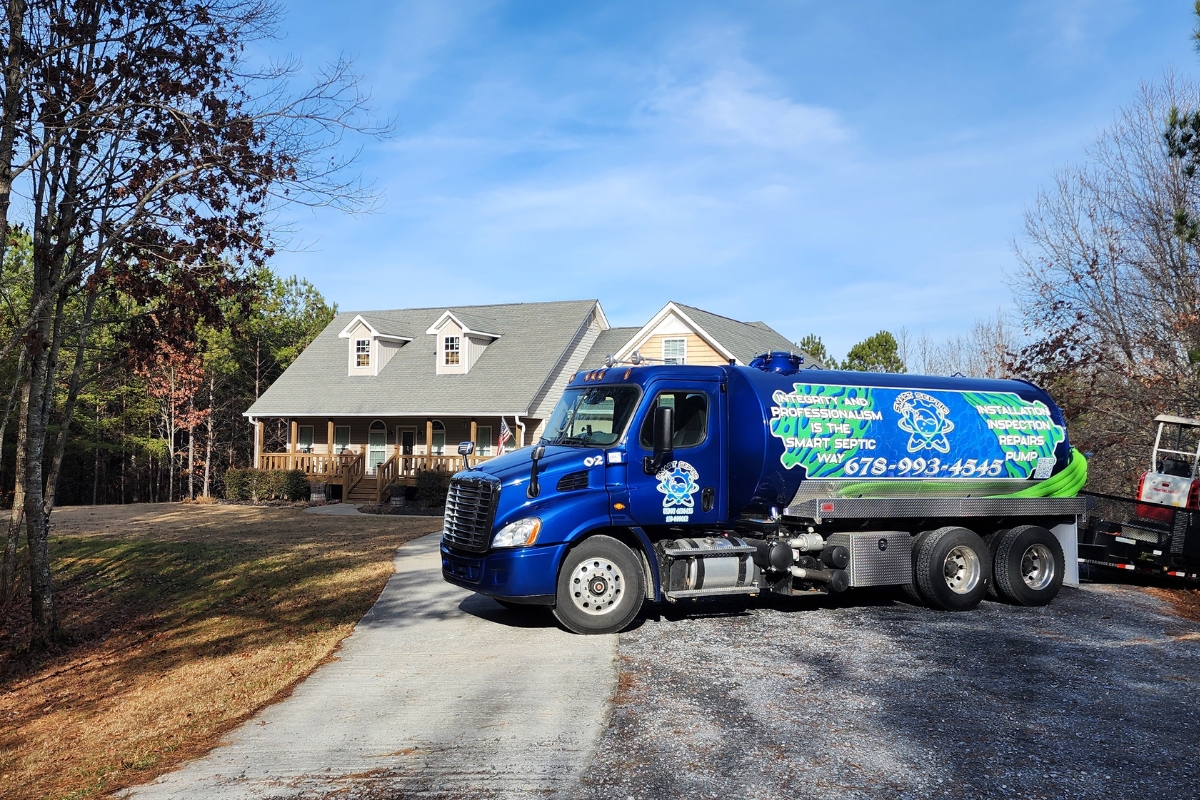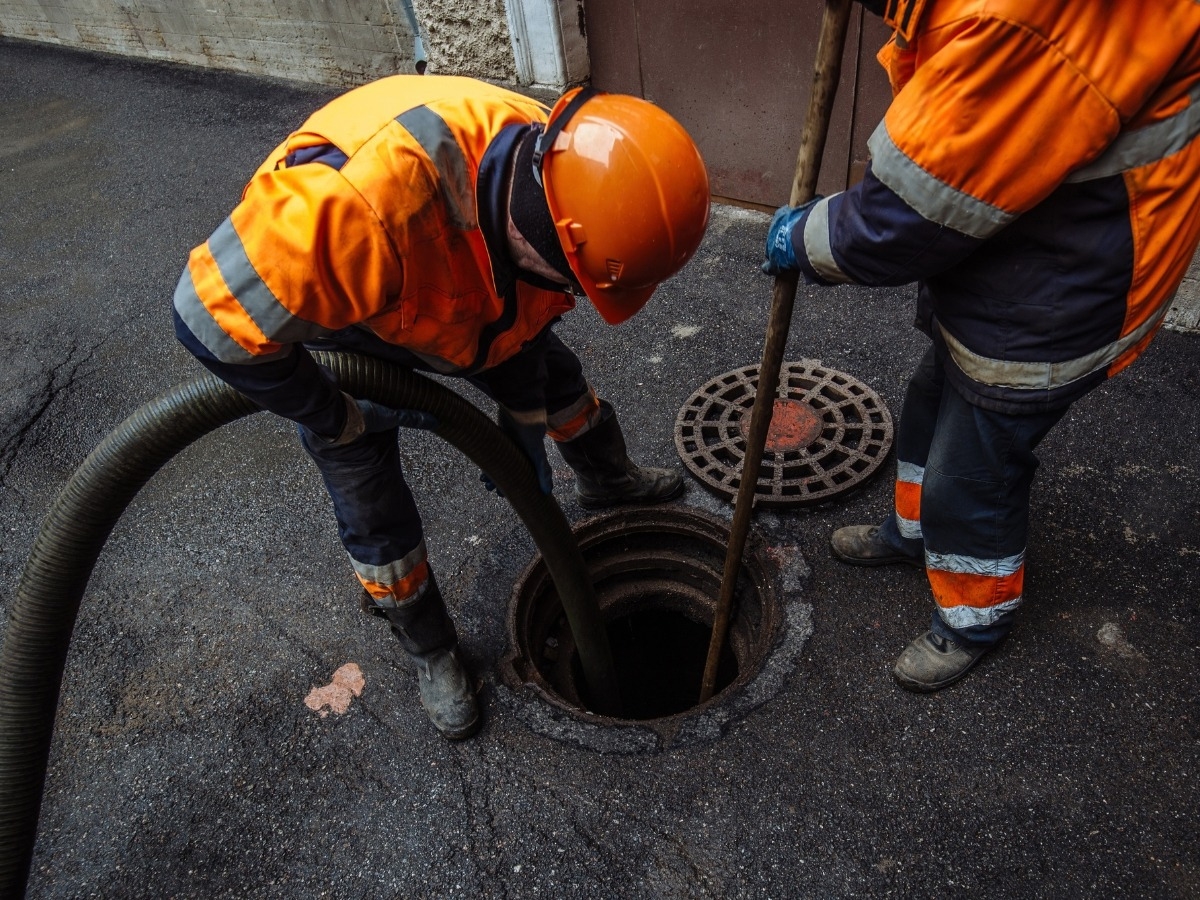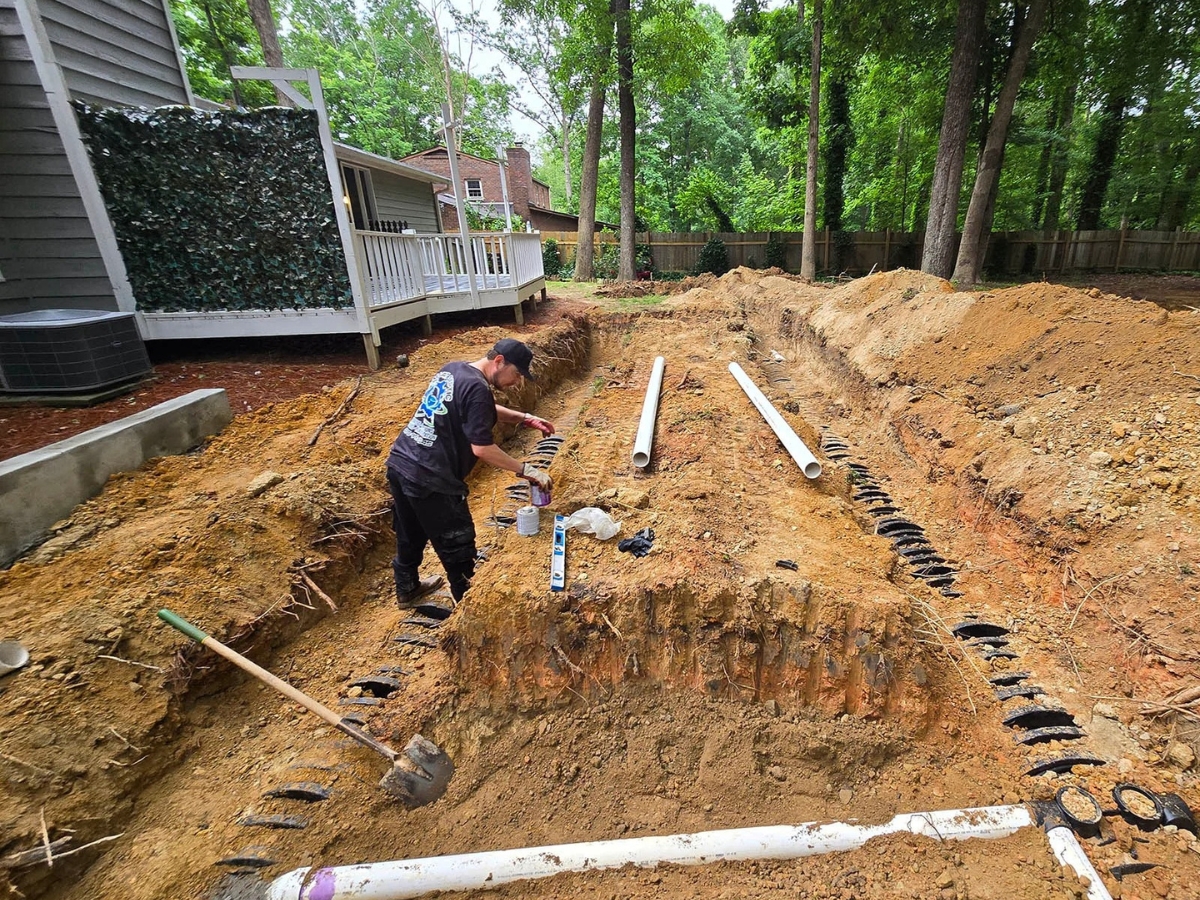Navigating the real estate market can be complex, especially when properties with septic systems are involved. Whether you’re buying or selling, understanding the intricacies of septic systems is crucial for ensuring a smooth transaction and avoiding costly surprises.
In this guide, we’ll delve into the essential dos and don’ts of dealing with real estate and septic systems, offering practical tips to help you make informed decisions. From inspections and disclosures to maintenance and repairs, learn how to master the process and protect your investment.
Is Your Dream Home Septic System Ready? Real Estate Insights!
Understanding the Role of Septic Systems in Real Estate Transactions

When it comes to real estate transactions, understanding the role of a house septic tank and system is crucial. Septic systems are responsible for managing and treating wastewater in properties that are not connected to a municipal sewer system. This includes residential homes, commercial buildings, and even vacant land that may be developed in the future. Buyers and sellers need to be aware of the importance of home septic tanks in maintaining a healthy and functional property. A faulty septic system can lead to costly repairs, environmental contamination, and even legal issues. Therefore, it is essential to have a clear understanding of how septic systems work and their impact on real estate transactions.
Septic systems consist of several components, including a septic tank, drain field or leach field, and pipes that connect them. The septic tank collects wastewater from toilets, sinks, showers, and other sources within the property. Solid waste settles at the bottom of the tank while liquids flow into the drain field for further treatment.
During a real estate transaction, it is important for both buyers and sellers to understand the condition of the septic system. Buyers should request an inspection to ensure that everything is functioning properly before finalizing the purchase. Sellers should disclose any known issues or maintenance history related to their septic system.
Recognizing Red Flags: Signs of Septic System Issues

Identifying red flags related to septic system problems can be crucial for both homebuyers and sellers. Being aware of these warning signs helps avoid unexpected expenses and ensures the system functions properly.
- Slow Drainage: If sinks, toilets, or showers drain slowly or emit gurgling noises, it might indicate a clog or blockage in the septic system. This is often one of the first noticeable signs of a malfunction.
- Foul Odors: Unpleasant smells, particularly around the drain field or near plumbing fixtures, can suggest that the septic tank is full or that waste is not being adequately processed. These odors shouldn’t be ignored, as they often indicate a deeper issue.
- Pooling Water: Accumulation of water or soggy spots around the drain field, especially when there hasn’t been rain, is a red flag that the system may be overwhelmed or failing to disperse wastewater correctly.
- Lush Green Patches: Areas of the lawn that are noticeably greener and more vibrant than others near the drain field could be absorbing excess wastewater. While it might seem like a positive sign, it can indicate the system is leaking and needs attention.
- Sewage Backups: Frequent backups or blockages in the plumbing system can point to septic problems. If sewage starts to back up into sinks, toilets, or drains, it’s a sign that immediate action is needed to prevent further damage.
Addressing these issues promptly can save both buyers and sellers from costly repairs and ensure the septic system remains in good working order. Ignoring these signs could lead to more extensive and expensive repairs in the future.
Real Estate and Septic Systems Dos and Don’ts

When dealing with real estate transactions involving septic systems, both buyers and sellers must be aware of best practices to ensure a smooth process and avoid potential issues. Understanding the dos and don’ts of septic systems can help both parties navigate the complexities of real estate while maintaining the health and functionality of the septic system.
Dos for Buyers:
- Do Schedule a Septic Inspection: Before closing on a property, ensure that a professional septic inspection is conducted. This will give you a clear understanding of the system’s condition and whether any repairs or maintenance are needed. A thorough inspection includes checking the tank, drain field, and overall system functionality.
- Do Understand Maintenance Requirements: Familiarize yourself with the maintenance needs of the septic system. Regular pumping, typically every 3-5 years, is crucial for preventing overflows and backups. Additionally, learn what materials should not be flushed or drained, such as grease, wipes, and harsh chemicals.
- Do Include Septic System Clauses in the Purchase Agreement: When purchasing a property, include clauses that address the septic system. For example, you can request that the seller performs any necessary repairs or upgrades before closing, or you might negotiate a lower purchase price to account for potential septic system issues.
Don’ts for Buyers:
- Don’t Ignore Red Flags: Pay attention to signs that your septic system may be failing—slow drains, foul odors, or water pooling in the yard. Ignoring these indicators could lead to significant issues demanding expensive repairs.
- Don’t Assume All Septic Systems Are the Same: Septic systems vary in design and capacity. Make sure the system is appropriate for your household size and usage needs. For example, a septic system designed for a two-bedroom home may not be sufficient for a family of five.
- Don’t Forget About Local Regulations: Different areas have specific regulations regarding septic systems. Ensure that the property’s septic system complies with local codes and that any necessary permits are in place.
Dos for Sellers:
- Do Keep Maintenance Records: Maintaining a detailed record of septic system inspections, pumpings, and repairs can be invaluable when selling your property. These records provide transparency and help build buyer confidence in the system’s condition.
- Do Consider a Pre-Listing Inspection: By having a septic system inspection before listing your property, you can address any issues in advance, making the sale process smoother and potentially increasing the property’s value.
- Do Educate Potential Buyers: Inform buyers about the location, capacity, and maintenance schedule of the septic system. Providing a clear overview helps buyers feel more confident in their decision.
Don’ts for Sellers:
- Don’t Conceal Known Issues: Transparency is key in real estate transactions. Failing to disclose known septic system problems can lead to legal issues and jeopardize the sale.
- Don’t Neglect Septic System Maintenance: Regular maintenance not only ensures the system’s functionality but also preserves the property’s value. Neglecting maintenance can lead to system failures that could be expensive to repair and delay the sale.
- Don’t Overlook the Importance of Staging: If your property’s septic system is located near outdoor living spaces, ensure these areas are well-maintained and appealing to potential buyers. First impressions matter, and a well-presented yard can enhance the overall attractiveness of your property.
In conclusion, both buyers and sellers must approach septic systems in real estate with due diligence. By following these dos and don’ts, you can avoid common pitfalls and ensure a successful transaction.
Importance of Proper Septic Maintenance in Real Estate
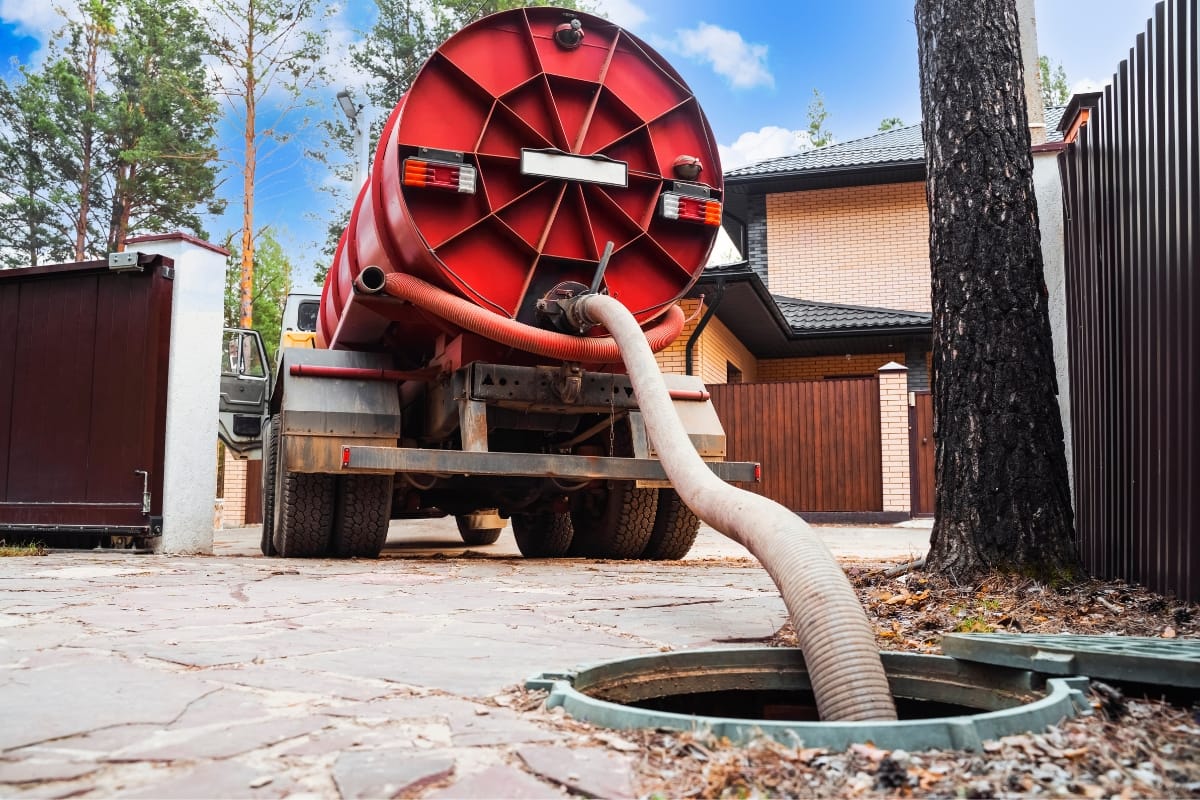
Proper system maintenance by a septic system professional is crucial for both buyers and sellers in real estate transactions. Regular maintenance helps prevent costly repairs and ensures that the system functions efficiently for years to come. For sellers, maintaining their septic system can increase the value of their property and attract potential buyers. A well-maintained septic system gives buyers confidence that they won’t encounter any unexpected issues after purchasing the property.
Buyers should also prioritize proper maintenance once they become homeowners. Regular pumping of the septic tank every 3-5 years, avoiding excessive water usage, and being mindful of what goes down drains can help prolong the lifespan of the septic system.
In some cases, sellers may choose to have their septic systems inspected and pumped before listing their property on the market. This proactive approach can provide peace of mind to both buyers and sellers by ensuring that everything is in working order.
Disclosures and Legal Obligations Regarding Septic Systems

In real estate transactions, sellers with properties that have septic systems are legally required to disclose any known issues or defects with the system. This obligation is part of broader property disclosure laws designed to protect both buyers and sellers by ensuring transparency in the transaction process.
The disclosure typically occurs through a Seller’s Property Disclosure Statement, which is a legally binding document. In this statement, the seller must outline the condition of various components of the property, including the septic system. This document provides buyers with essential information to make an informed decision and avoid unexpected costs down the line.
Furthermore, local regulations often require that septic systems be inspected or certified before the sale is finalized. In some regions, these inspections are mandatory and must be conducted by a licensed professional. These requirements ensure that the septic system is functioning properly and meets all health and safety standards. Failure to comply with these legal obligations can result in significant penalties for the seller and potential legal disputes with the buyer.
Buyers should thoroughly review the Seller’s Property Disclosure Statement and consult with their real estate agent or legal advisor to ensure that all disclosures and inspections meet local regulations. Taking these steps helps prevent future complications and ensures a smoother transaction process.
How Septic System Health Impacts Property Value

The condition of a septic system can significantly influence a property’s value, as it is a crucial component of a home’s infrastructure. A well-maintained septic system adds value by providing a dependable and efficient wastewater disposal solution, giving potential buyers peace of mind. This reliability can be a strong selling point, particularly in rural or suburban areas where access to a municipal sewer system is limited.
Conversely, a malfunctioning or outdated septic system can be a significant detractor, potentially lowering property value and discouraging potential buyers. Buyers often view a faulty septic system as a costly liability, as repairs or replacements can range from several thousand to tens of thousands of dollars. This concern can lead to reduced offers or even cause buyers to walk away from a deal entirely.
To maintain or enhance property value, it’s essential for sellers to invest in regular septic system maintenance and address any issues promptly. For buyers, the condition of the septic system should be a key factor in assessing a property’s overall worth.
Obtaining a professional inspection and ensuring that the system meets local regulations can prevent future expenses and safeguard the investment. A thorough septic checklist can help ensure proper septic system health, which is not just a matter of functionality but a critical aspect of preserving and maximizing property value.
Negotiating Strategies for Buyers and Sellers with Septic Systems

Negotiating real estate transactions involving septic systems requires strategic approaches from both buyers and sellers. For sellers, demonstrating proactive care of the septic system can position them advantageously in negotiations.
Sellers should provide documentation of routine maintenance, inspections, and any repairs made. This transparency not only builds trust with potential buyers but can also justify a higher asking price by showcasing that the system is in good working condition.
Buyers, on the other hand, should prioritize a thorough inspection of the septic system. Identifying any potential issues, such as necessary repairs or system age, gives buyers leverage in negotiations. If problems are discovered, buyers can negotiate for a lower purchase price or request that the seller covers the cost of repairs before the sale is finalized.
Both parties should aim for transparency and collaboration, as open communication often leads to mutually beneficial agreements. For example, if the seller is unwilling to lower the price, they might agree to an escrow holdback, where funds are set aside to cover future repairs.
Septic System Inspection Process: Ensuring Septic System Compliance
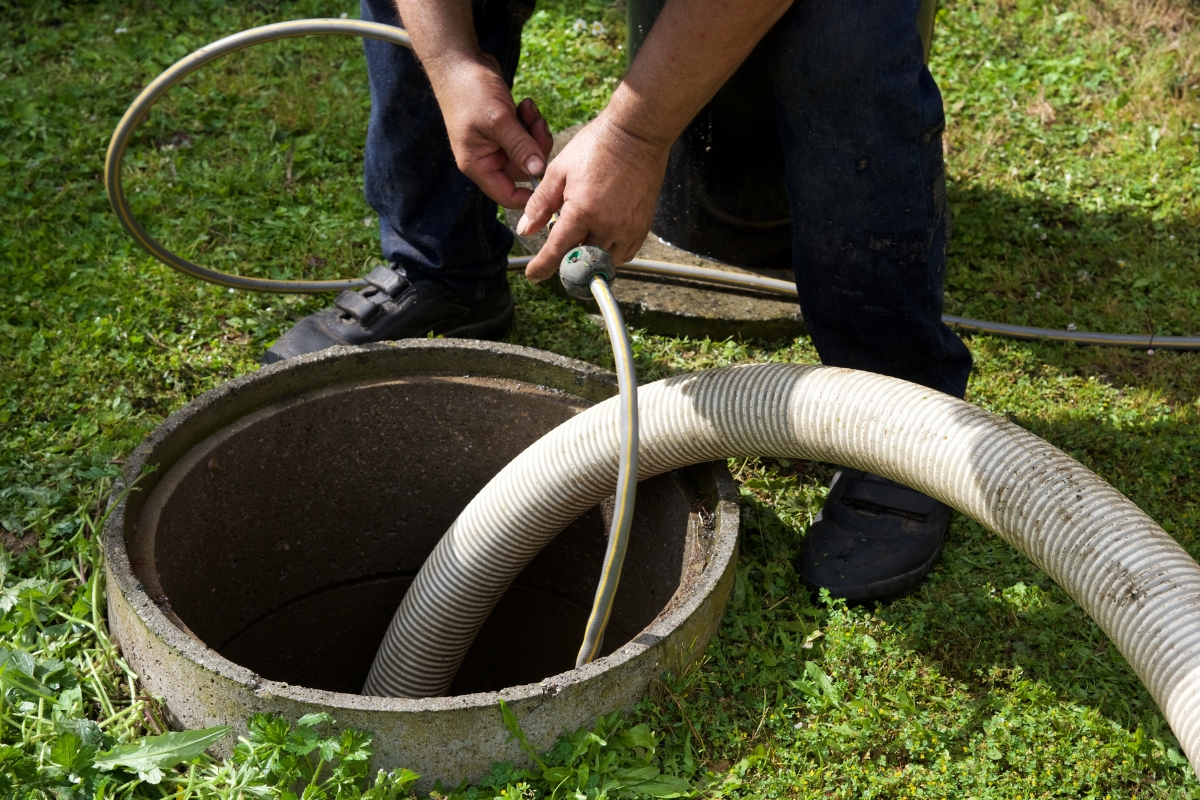
The inspection process is a critical step in real estate transactions involving septic systems. Inspections help ensure that the septic system complies with local regulations, functions properly, and poses no immediate risks to the property or its occupants.
Buyers should hire a qualified inspector who specializes in septic systems to conduct a thorough evaluation. The inspector will assess various components of the system, including the tank, drain field, pipes, and any additional features such as pumps or alarms.
If any issues are identified during the inspection, buyers can request further evaluations or repairs before proceeding with the transaction. Sellers should be prepared to address these concerns promptly to avoid delays or potential deal-breakers.
It is essential for both buyers and sellers to understand that inspections are not just for identifying problems but also for ensuring compliance with local regulations. Failing to meet these requirements can result in legal consequences and financial liabilities.
Mastering Real Estate Deals Involving Septic Tanks
Buying a new home and in need of septic system advice in Canton, Acworth, Marietta, or the metro Atlanta area? Navigating real estate transactions involving septic systems requires knowledge, diligence, and effective communication between buyers, sellers, and real estate professionals. Remember, the health of a septic system can impact property value and the overall satisfaction of all parties involved.
To ensure a smooth transaction and avoid costly mistakes, trust the professionals at Smart Septic Pros. Our knowledgeable team is here to guide you through the specifics of septic systems with our septic services. Contact us at 678-993-4545 or visit our website to request one of our services. Let Smart Septic Pros be your partner in making informed decisions and securing your investment.
